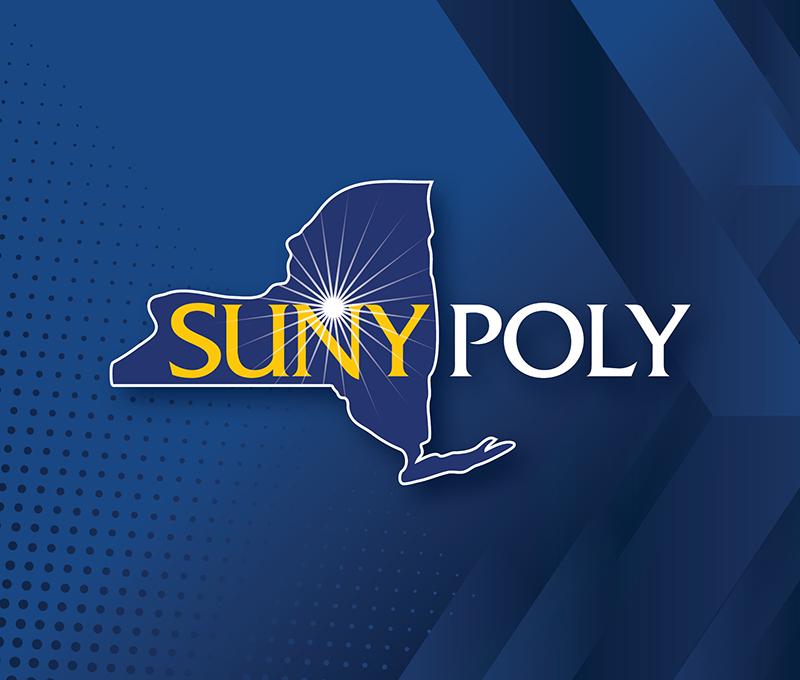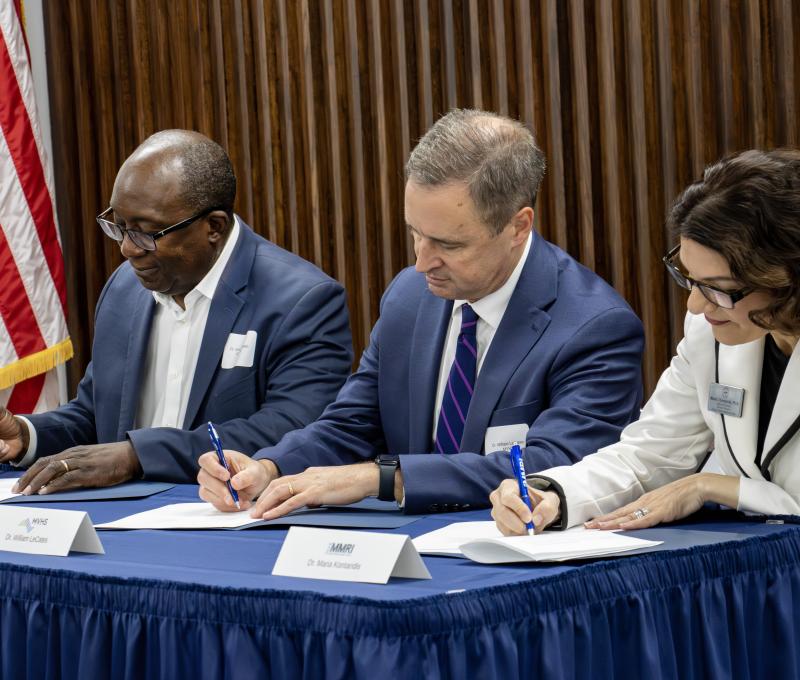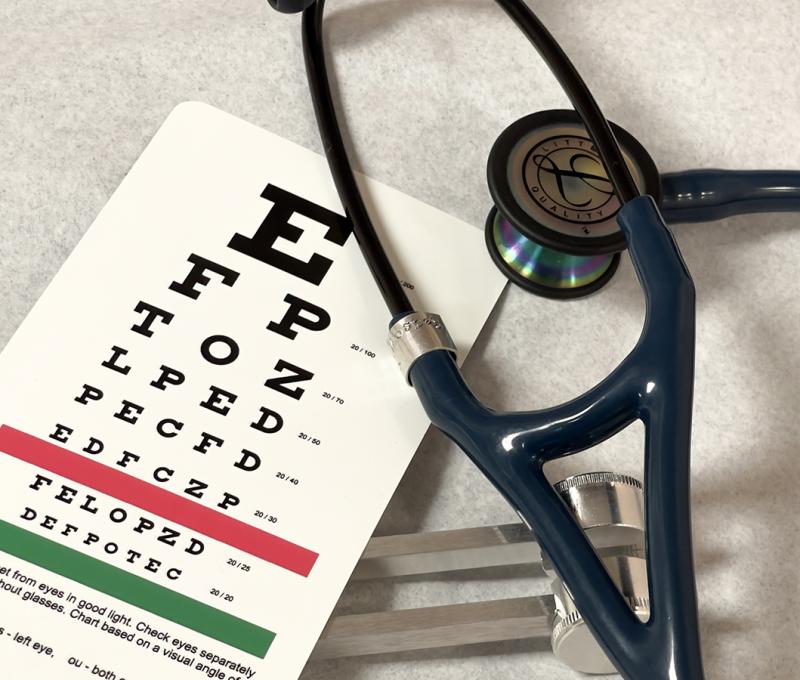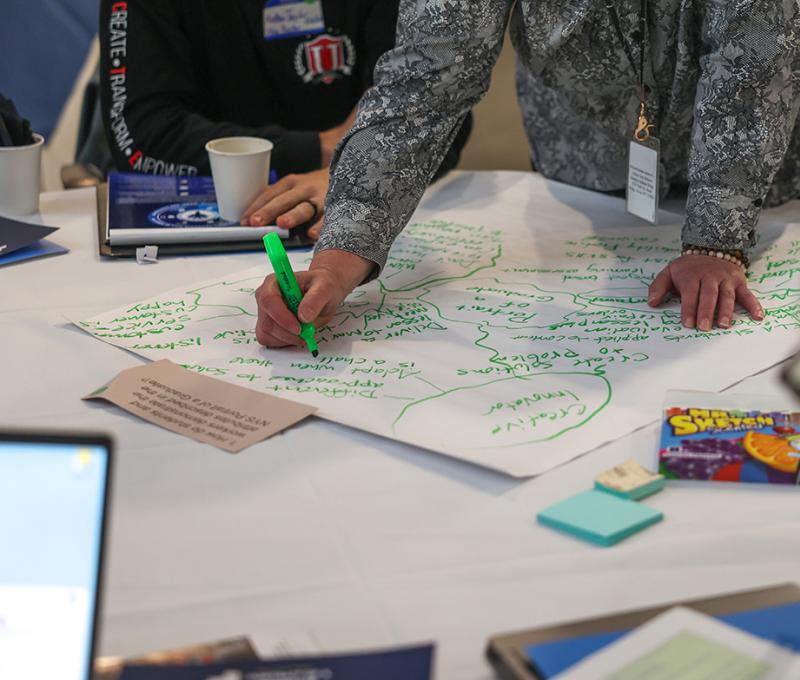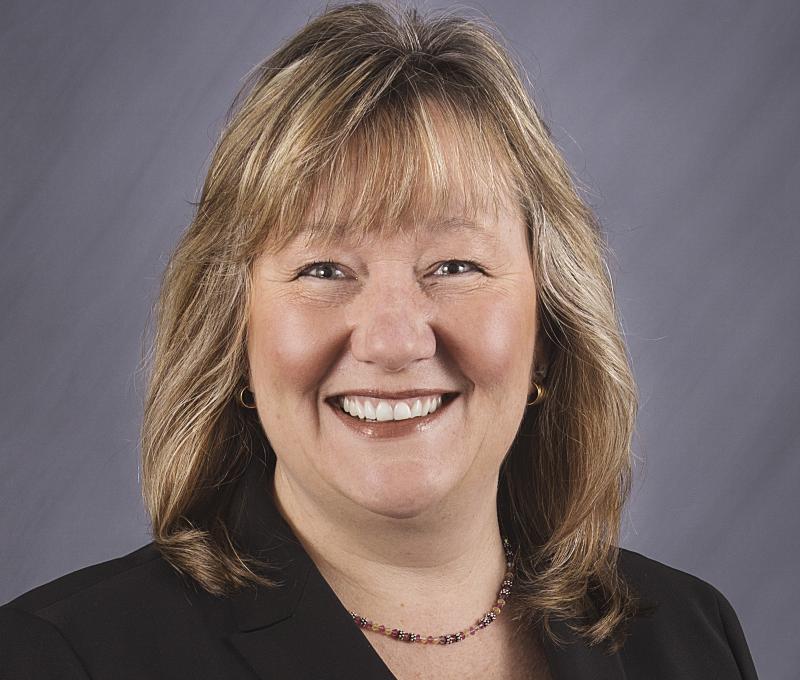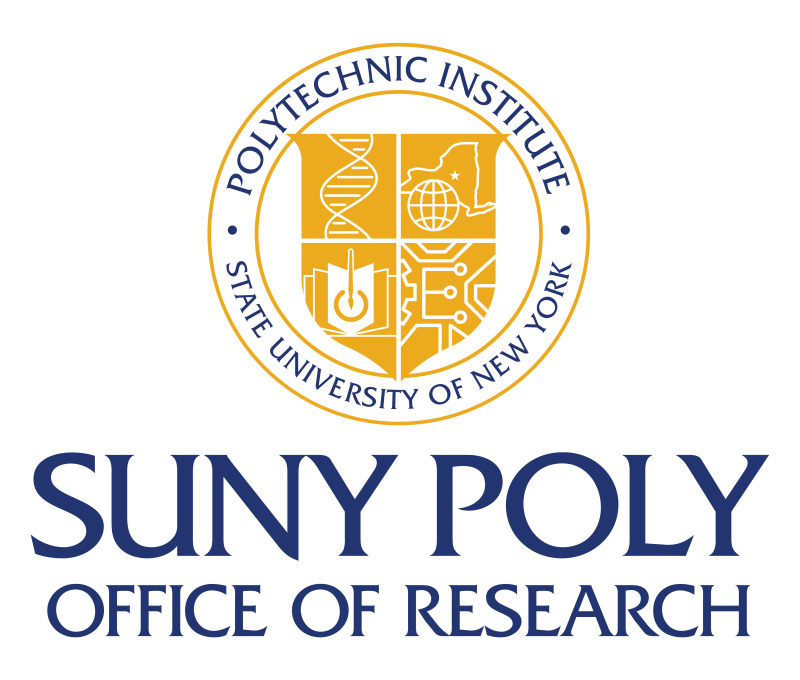Chancellor Malatras Announces SUNY Poly Among 17 SUNY Campuses Awarded Grants to Purchase Food Pantry Refrigeration
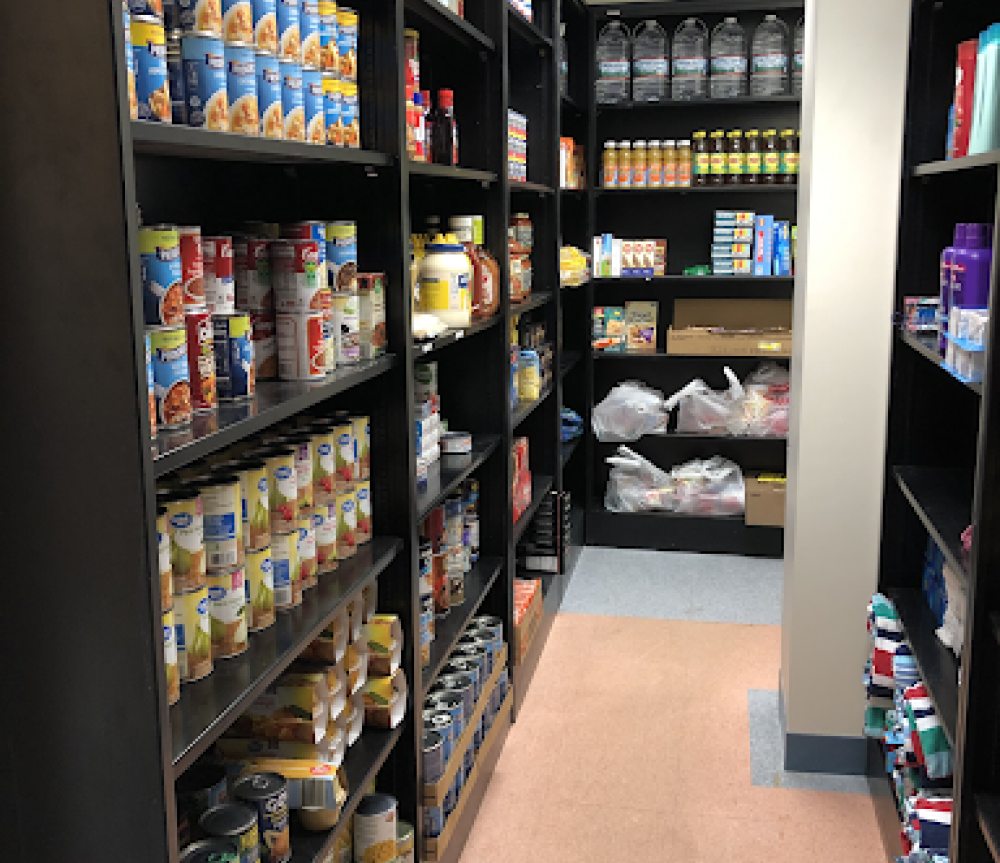
SUNY News Release
SUNY Launches Second-Round of Grants for Food Pantry Refrigeration; Part of Larger Effort to Ensure Students on Campuses Have Access to Refrigerated Items as Food Insecurity Grows Across the Nation
Photos Online Here as Chancellor Malatras Makes the Announcement at SUNY Delhi
For Immediate Release: Thursday, March 18, 2021
Contact: Holly Liapis; Holly.Liapis@suny.edu; 518-320-1311
Delhi, NY – State University of New York Chancellor Jim Malatras announced the first round of SUNY campuses to receive grants to purchase food pantry refrigeration, with 17 awarded today. SUNY also launched a second round of grants under the program for other eligible campuses. The grants are part of a larger effort to ensure students on campuses have access to refrigerated items as food insecurity grows across the nation. All SUNY students have access to a food pantry on or near campus, and with today’s awards, 55 campuses are now equipped to handle fresh food along with non-perishable items.
SUNY will continue its grant program until all campuses have at least one food pantry with a refrigerator. Chancellor Malatras announced the grant program last month to allow student associations or campus food pantry coordinators without the financial means to acquire a refrigerator to apply for and receive grants from SUNY on behalf of their campus. Campuses may apply for the second round of grants at www.suny.edu/foodinsecurity/grants/.
Chancellor Malatras announced the awardees from SUNY Delhi, one of the campuses receiving the first grants today. The campus serves approximately 3,000 students from its food pantry, and has been adding resources to combat food insecurity. Other campuses awarded grants include: Buffalo State College, Cayuga, Clinton, Dutchess, SUNY ESF, Finger Lakes, Fredonia, Geneseo, Herkimer, Hudson Valley, Mohawk Valley, Morrisville, Plattsburgh, SUNY Poly, Ulster, and University at Buffalo.
“Today’s grants are a result of passionate advocacy by our student leaders who called for refrigeration at campus food pantries so that all students have access to high quality meals. Hunger has no place on our campuses, and we must do everything we can to eliminate it so that students can focus on their studies,” said Chancellor Malatras. “Our mission at SUNY is to make that decision easier by supporting our students with sustainable food options with the hope that one day our food pantries won’t be necessary. Until that day happens, we will make our food pantries as robust as possible, and with a little bit of funding, we are able to do so.”
In addition to having a food pantry on campus, Delhi was the first SUNY campus to implement “Swipe It Forward” in fall 2019. Students can donate up to 50 percent of the bonus meals on their meal plan and students in need can anonymously request meals from the “bank” of meals donated via an online form. The program is designed to keep recipients anonymous, taking away the stigma that can go with needing assistance. SUNY Delhi's Food Insecurity Task Force developed the program in collaboration with Swipe Out Hunger, a national non-profit organization.
SUNY Delhi President Michael R. Laliberte said, “SUNY Delhi is proud to be at the forefront of the fight against food insecurity among college students, raising awareness of student needs and resources available while reducing the stigma long-associated with these issues. This SUNY grant will further enhance our food pantry efforts to include perishable items for our students in need. We want to thank Chancellor Malatras for his continued support in these efforts to help ensure every SUNY student has resources to fight food insecurity while attending college.”
SUNY Student Voices Action Committee member and SUNY Delhi Student Senate President Nii Tetteh said, “On behalf of all students at SUNY Delhi, I thank Chancellor Malatras for coming to visit us today and for continuing to listen to our concerns—food insecurity is a very important issue for college students, and we’ve been very involved in combatting it on our campus. These grants are going to make a difference for many students across SUNY for years to come, ensuring that they have easy access to food that will keep them healthy and well nourished so they can focus on their students and succeed academically.”
SUNY Senior Advisor to the Chancellor and Student Advocate Dr. John Graham said, “Our 64 campuses worked tirelessly to meet the requirement of having a food pantry or access to a food pantry for our students—today’s announcement takes this movement to a whole new level. Dry pantries are helpful, but having refrigeration options allows for no restrictions on what they can store for students, gives students more options, and provides them with sustainable food sources that they can rely on. My thanks to Chancellor Malatras for elevating this issue and supporting campuses in need for refrigeration. This effort also reinforces the great relationships we’ve created with local food banks, and we look forward to our continued work with these organizations to make food insecurity a thing of the past.”
The food refrigeration issue was first raised by Binghamton University student Jacob Eckhaus, a member of the SUNY Student Voices Action Committee. The committee was formed by Chancellor Malatras this past fall to generate important discussions and solutions to key issues facing students. Chancellor Malatras was joined by Eckhaus and Binghamton University President Harvey Stenger at their campus pantry last month for the official launch of the grant program.
In addition to having food pantries on campuses, Chancellor Malatras has established additional programs to get resources and food to students as part of the SUNY for All program. Last month, he announced a partnership with Feeding New York to help approximately three million New Yorkers utilizing regional food banks with a gateway to SUNY's free Online Training Center.
New York's regional Food Banks will help deliver enrollment opportunities and support to the nearly three million New Yorkers currently facing food insecurity. As part of the partnership, SUNY will conduct joint enrollment webinars with food banks on a quarterly basis. Participating regional Food Banks are:
- City Harvest
- Feeding Westchester
- FeedMore Western NY
- Foodlink
- Food Bank of Central New York
- Food Bank of the Southern Tier
- Island Harvest Food Bank
- Long Island Cares, Inc.
- Regional Food Bank of Northeastern NY
Also last month, Chancellor Malatras announced a SUNY for All Supplemental Nutrition Assistance Program enrollment initiative to assist 10,000 students facing food insecurity within SUNY’s free Online Training Center, Education Opportunity Centers, and Advanced Technology Training and Information Networking labs. It is designed to help those who are eligible for benefits, but who—for a wide range of reasons—don’t sign up. An internal survey of SUNY students showed that only 23 percent of eligible students considered even enrolling in SNAP. The new enrollment initiative was implemented to boost the number of applicants.
In order to be eligible for SUNY's new SNAP enrollment initiative, students must be engaged at least half-time in a career and technical education program, remedial coursework, basic adult education, literacy, or English as a second language, which are available within SUNY's free Online Training Center, Educational Opportunity Centers, and Advanced Technology Training and Information Networking labs. Previously, these students did not qualify for SNAP assistance, unless they met certain criteria, such as working at least 20 hours per week, or caring for a child, or were unable to work, among others. New York State's new rules allow students to substitute certain coursework for the 20-hour work requirement, greatly opening eligibility to students who are struggling financially.
To learn more about the SUNY for All programs, visit suny.edu/sunyforall.
About The State University of New York
The State University of New York is the largest comprehensive system of higher education in the United States, and more than 95 percent of all New Yorkers live within 30 miles of any one of SUNY’s 64 colleges and universities. Across the system, SUNY has four academic health centers, five hospitals, four medical schools, two dental schools, the state’s only college of optometry, and manages one US Department of Energy National Laboratory. In total, SUNY serves about 1.3 million students in credit-bearing courses and programs, continuing education, and community outreach programs. SUNY oversees nearly a quarter of academic research in New York. Research expenditures system-wide were more than $1.0 billion in fiscal year 2020, including significant contributions from students and faculty. There are more than three million SUNY alumni worldwide, and one in three New Yorkers with a college degree is a SUNY alum. To learn more about how SUNY creates opportunity, visit www.suny.edu.
###


